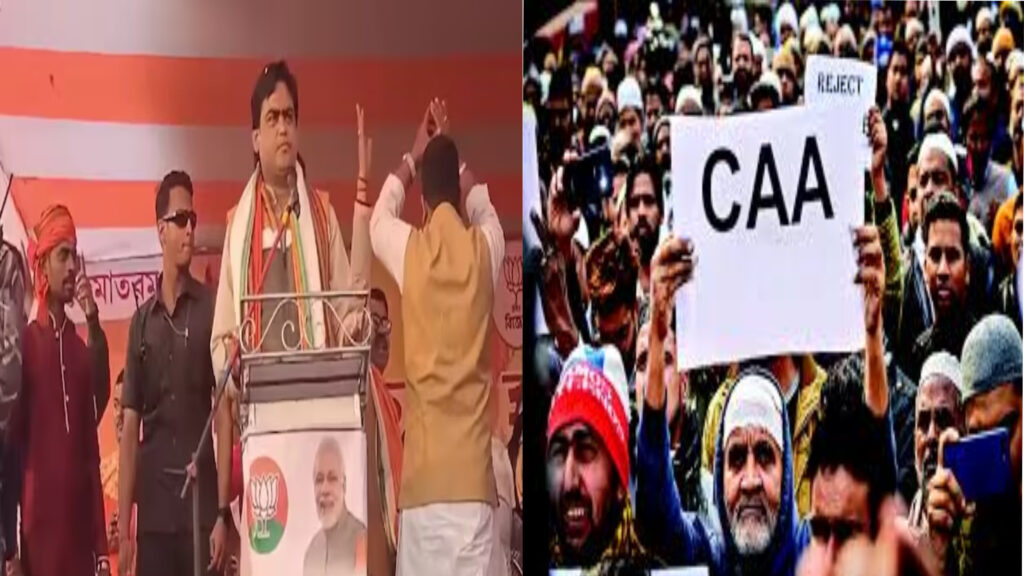The Citizenship (Amendment) Act (CAA), a consequential and contentious piece of legislation in India, is poised for nationwide implementation within the next seven days, as declared by Union Minister and BJP leader Shantanu Thakur. This announcement was made at a public event in Kakdwip, South 24 Parganas, West Bengal.
Stating the imminent enforcement of the CAA, Thakur emphasized, “In the next seven days, not only in West Bengal but across the entire country, the CAA will be enacted.”This declaration emerges amid continuing political disagreements and debates about the Act.
Responding to Thakur’s statements, West Bengal Chief Minister and Trinamool Congress leader Mamata Banerjee criticized the BJP’s approach, accusing them of exploiting the CAA to instill fear for electoral gains. Banerjee, during a speech in Cooch Behar, stated, “They (BJP) are utilizing the CAA as a political tactic. We have already granted citizenship to everyone, and the people in the border areas are availing all benefits. They are legitimate citizens, which is evident from their right to vote.”
Further contesting Thakur’s claims, Banerjee cautioned the people in border areas against accepting any identity cards associated with the CAA, suggesting it could be a ploy leading to the National Register of Citizens (NRC). “Do not accept their so-called identity cards. You already have your voter ID and Aadhaar card. Accepting their card might make you fall under the NRC,” Banerjee warned.
Additionally, Trinamool Congress spokesperson and state minister Shashi Panja dismissed Thakur’s statement, emphasizing that West Bengal would resist the implementation of the CAA. Speaking to Aaj Tak, an affiliate of India Today, Panja remarked, “Thakur should introspect on the likelihood of CAA’s enforcement. They are merely misleading the public ahead of elections.”Panja further emphasized Chief Minister Banerjee’s view that the CAA is redundant in Bengal, given that the residents are already citizens of India.
Shantanu Thakur, echoing the sentiments expressed by Union Home Minister Amit Shah, reinforced the central government’s commitment to implementing the CAA. Shah, in a previous statement, had categorically stated that the CAA would be enacted, and no opposition could prevent it. This was a direct challenge to Chief Minister Banerjee, a vocal opponent of the Act. Addressing a rally in Kolkata, Shah criticized Banerjee on various fronts, including illegal immigration and corruption, and called for her government’s replacement in the 2026 Assembly elections.
The CAA, since its passage in Parliament and subsequent presidential approval in 2019, has been a focal point for widespread protests and political opposition. Recently, a news report from PTI, citing an unnamed official, indicated that the rules for the CAA are finalized and will be made public well before the next Lok Sabha elections. The report also mentioned that the application process for the CAA would be entirely digital.
As per the official cited by PTI, applicants under the CAA will need to declare their entry year into India without travel documents, and no additional documentation will be required. The digital nature of the process aims to streamline and simplify the application procedure for potential beneficiaries.
The CAA’s implementation has stirred considerable debate and political discourse in India, with its implications being closely watched by various stakeholders across the nation. The coming days are expected to be crucial in determining the trajectory of this significant legislation and its impact on the Indian political landscape.

